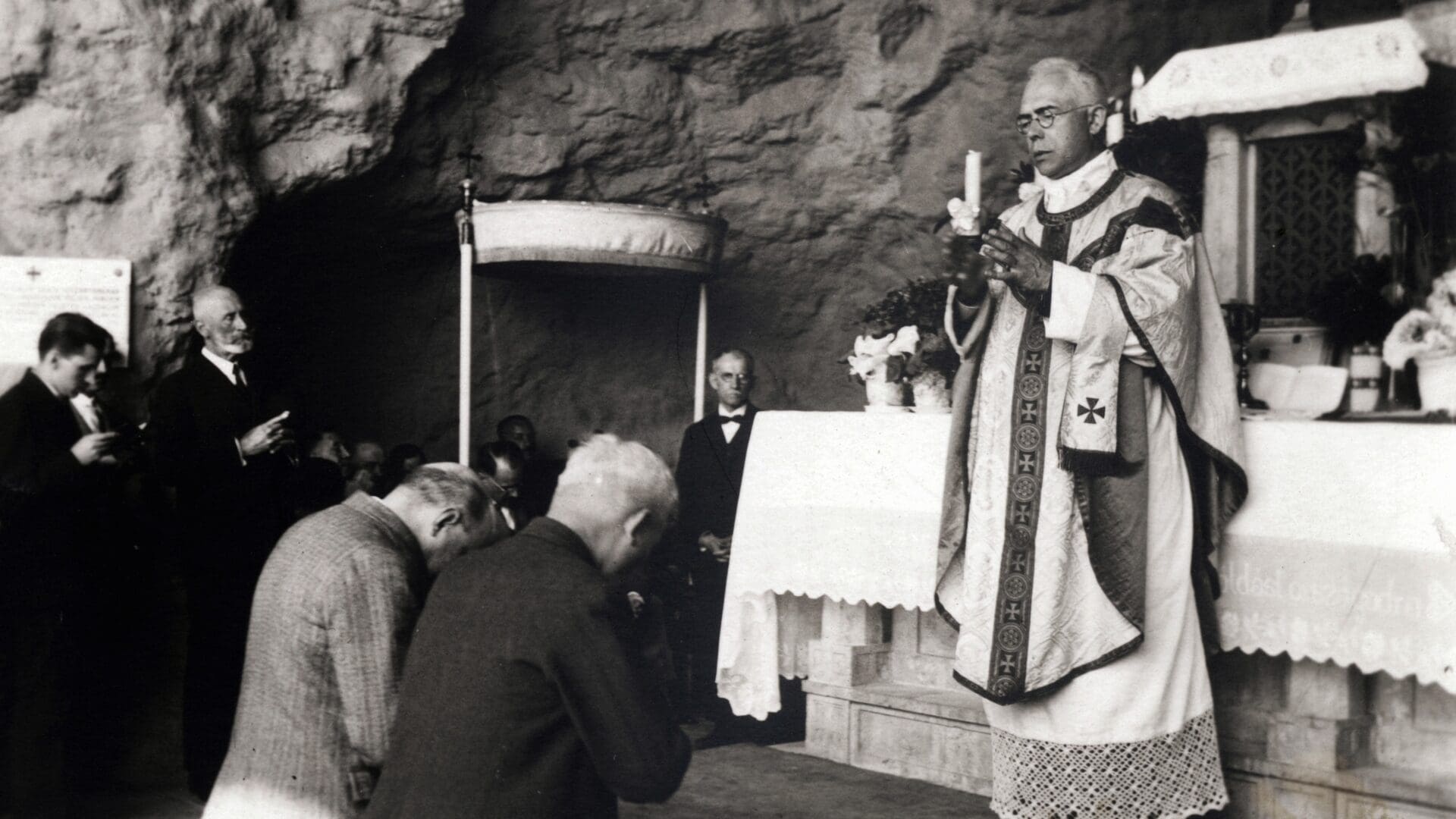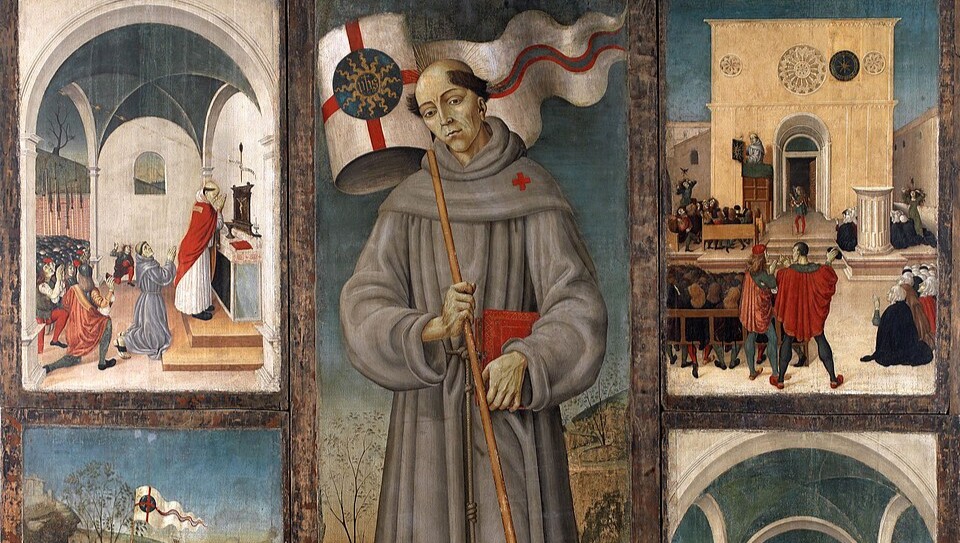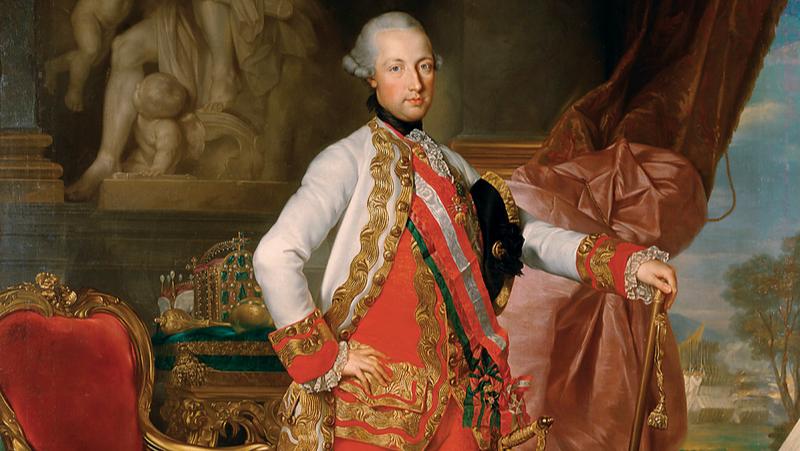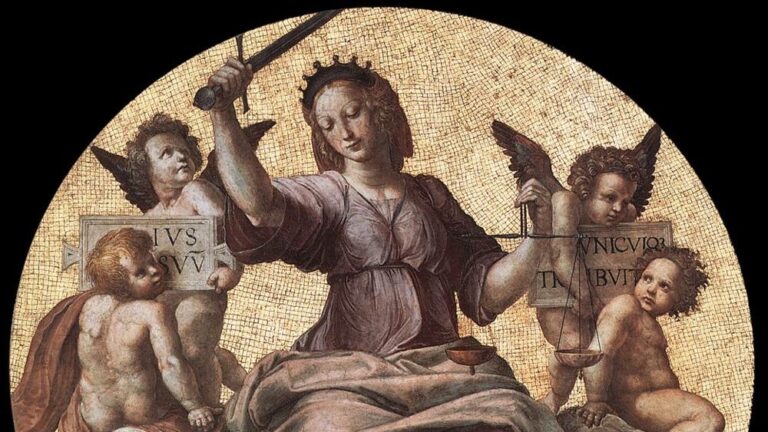Béla Bangha SJ was a man of his time. Both his public and ecclesiastical activities are well embedded in the era and milieu he lived and worked in. As a member of the Jesuit order, he was a representative of militant Catholicism or ‘ecclesia militans’ in Jenő Gergely’s terms. Not only because of his efforts to organise the Catholic press and the Catholic crowds, but also because of his message.
In his articles and books, he deals with problems that place him in the role of a practical apologist rather than a theoretical Catholic thinker and writer. Through this attitude and his activities as the head of the Catholic press company and Catholic organisations such as the Congregations of Mary, he is closely connected to the public life of his time. Thus, he is not free from its failures and its unfounded, pseudoscientific concepts. With all of these observations, we do not want to absolve the pater from his mistakes; his own publications and books speak against him; instead, reviewing his book allows us to present one of the main ideological trends of the Horthy era.
One of our goals with the series about Hungarian Christian socialism is to identify its various forms which were part of Hungarian public life at the turn of the century. Thus, we can draw a comprehensive picture of the diversity of the historical roots of Hungarian Christian democracy and of the relationship between different Christian socialist public figures and groups. In our previous article, we examined the modern Christian democratic concept of Sándor Giesswein, while in this essay we look at a Christian-conservative theory that was closer to the Christian course of the Horthy system but also to the radical, race-protecting political trends, while at the same time undeniably bears the stamp of social thinking. In order to do so, we review Bangha’s book titled Hungary’s Reconstruction and Christianity, which can be called a book of its age. It is important to clarify that our article belongs to the critical analysis written about Father Bangha, which compares Bangha’s thoughts with those of his contemporaries, and also provides information about the historical context. The elements of Bangha’s critique of liberalism and socialism can serve as the basis of a subsequent study.
In order to understand Béla Bangha, it is necessary to be aware, first of all, of the a few basic facts from his personal life. He was born into a noble family in Nitra in Upper Hungary (today’s Slovakia) in 1880. After his secondary school studies, he entered the Jesuit order at an extremely young age—he was 15 years old—and this determined his entire later career, including his views on Christianity and his personal mission.[i] The defence of the faith and the popularisation of Catholicism became part of his activity from the beginning of his career. At that time, he gave lectures on apologetics in the Church of the Jesus’ Heart and he took over the editing of the magazine of Mary’s Congregation. According to Jenő Gergely, he was already campaigning against the ‘Jewish-liberal’ press in this early period; his aim was to reform Catholic newspapers by promoting a more militant direction. All of this shows us that Bangha acted especially purposeful on the issue of the press and publicity during his initial experiments.
It is worth mentioning that there were 80 Catholic newspapers already in the first years after the millennium, but their audience was quite insignificant. Bangha considered the relevance of Catholic publicity really important, as it clearly transpires from his activity in that early period—several years before the establishment of the Central Press Company. The first step was the founding of the magazine Magyar Kultúra, of which Bangha was the editor-in-chief from its creation in 1912 until his death in 1940.[ii]
In the leading article of the first edition,
he announced the programme for the expansion of the Christian Hungarian culture and national awakening.
As he explained, ‘this magazine undertook to redefine, cultivate and represent Christian thought’. According to Gergely, ‘the tone of Prohászka was replaced by the tactics of Bangha, which applies a knobstick rather than a sword’. It was the beginning of a period that had the motto: ‘Christianity is essentially a fight’.[iii] What does this fight mean and where does its power come from? The logical answer led to fundraising and to the establishment of the Central Press Company, which was responsible for the publication of really well-read newspapers such as Új Nemzedék, Gondolat, Nemzeti Újság and, of course, the aforementioned Magyar Kultúra after the counterrevolution. Bangha considered that the war, the occupation of the country, Trianon, and the red and white terror were the consequences of the rise of the anti-Christian and anti-nation trends, which generated disunion, disorientation, and chaos. The unconditional acceptance and copying of the constitutional forms of the West, the extreme openness to liberal slogans, the ‘reception of the Jews’, the rapid spread of the ‘Jewish- ruled Freemasonry’, the ‘plutocrat, pan-Semitic, freemason’ press, and as a natural consequence of all that, the Marxist subversion—these are the causes of the destruction according to Bangha.[iv] The success of the pater is best shown by the fact that the number of copies of the newspapers published by the KSV reached 150,000 by the beginning of the 1920s, thus competing with the largest liberal newspapers.
In addition to Bangha’s activity as a ‘press apostle’, it is necessary to mention his practical steps toward the organisation of the Catholic masses. László Bernát Veszprémy gives an excellent summary of this:
‘If Ottokár Prohászka brought Hungarian Catholic men into the church, Father Bangha took them out into the streets
and organised them into a pillar.’ At the beginning of his career, he was the leader of the Mary’s Congregation at universities and the Mary’s Congregation of Catholic Ladies; his innovation was that he led these organisations ‘from the apolitical space to the level of public life and politics’.[v] Bangha’s practical skills were also demonstrated as one of the organisers of the XXXIV. Eucharistic Congress in Budapest in 1938. [vi]
To better understand Bangha’s book, besides presenting the important milestones in his life, comparisons with contemporary writers need to be made. This can shed light on aspects that may have been hidden by traditional historical research. Sándor Giesswein’s writings can serve as a litmus test for understanding Bangha, by pointing out the difference between the two Catholic essayists who condemned both the pagan and materialistic abuses of liberalism and socialism. (We discussed the work of Sándor Giesswein in our previous article.) If we approached the issue in an oversimplified way, we could also say that Giesswein and Bangha had the same ideological starting point, the difference was in the goals and the paths leading to them. Both of them devoted a significant part of their theoretical work to the criticism of laissez fair capitalism, they raised their voices against liberalism, which exalts individual selfishness as an idol, and against socialism with its several irrationalism. Giesswein’s criticism focuses on the following: ‘isolated individuality isn’t a reality, neither is it the abstract concept of humanity’.[vii] The essence of his political thoughts and activity is his opposition to materialism as a philosophical paradigm and a worldview. Materialism is incompatible with the Christian approach, which lifts up the fundamental basis of human history from the material. Giesswein and other contemporary Christian democratic philosophers reconsidered the theoretical constructions of their time such as liberalism or Marxism, but on a completely different basis, which enabled them to identify outcomes that aren’t visible within the conceptual and theoretical framework of the ideology. Thus, Giesswein rightly states: ‘materialistic individualism can have no other consequence than materialistic socialism’.[viii] Bangha also objects to the absolutising of liberal values, such as individual freedom. According to him, liberalism is
a ‘worldview and a social principle that evaluates the individual—the person diverged from the Christian faith and solidarity—as the fount of all rights and laws,
furthermore, as the ultimate goal of life, just as the autonomous standard of moral and cultural progress’.[ix] At the same time, he applies a more militant tone than Giesswein, since he interprets this phenomenon as a return to paganism.
Another important difference between the two thinkers is that while Giesswein deals with Christian ethics, Bangha writes about the Christian national ideal, about Christianity as a cultural basis, as a spirit that imbues social development. The same can be seen in the following quote: ‘Christianity needs to receive governmental and social protection again and we need to make Christianity part of our public institutions—primarily our education system—more than before, wherethrough it prevails with sufficient measure even before those who do not have enough intellectual insight and moral feeling so that they would be able to appreciate Christianity individually as well.’[x] It seems clear he did not aspire after the governmental regulation of the practice of religion, but rather after a cultural propagation, after a ‘cultural conquest’, by which Christianity is evaluated as the moral basis of the society compared to other ideological trends and paradigm. This cultural and moral basis is the Christian national idea. That means besides the racial, linguistic, and geographical affiliation ‘the moral unity based on God’s will of those who are interdependent and who belong to each other’. He writes: ‘It is clear from the first moment that the “Christian national” idea is the strongest reinforcement of the “national” idea, and it is its transformation into the holiest, eternal and solid form’.[xi] Jenő Gergely summarises Bangha’s abovementioned idea as follows: ‘Since St Stephen, Christian and national thought have preserved the country’. In this way, ‘Christianity has become a permanent discipline which shapes society and maintains the state’. This is St Stephen’s legacy in the thousand-year history of the nation.[xii]
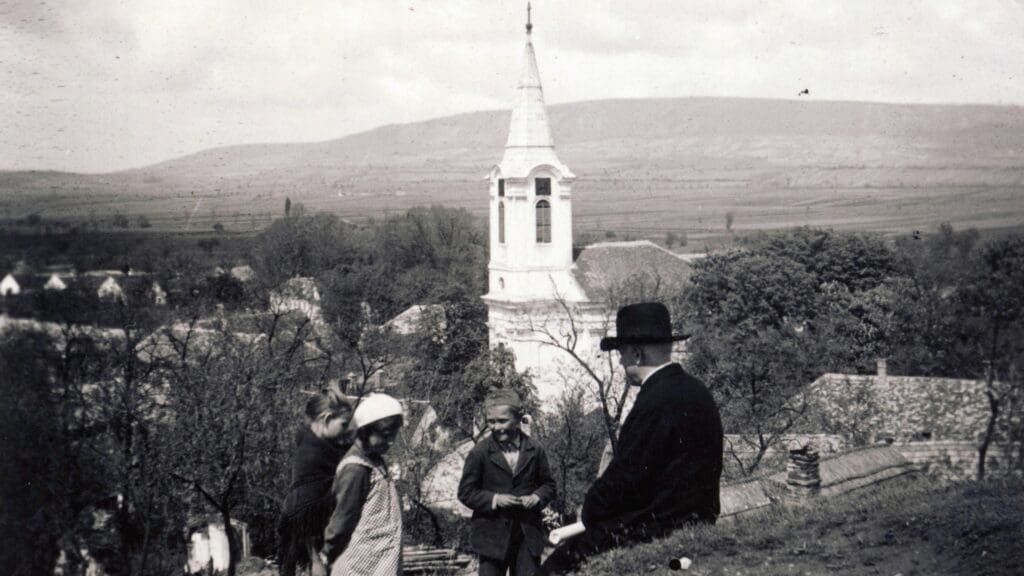
All of this points to a fundamental difference between Bangha and Giesswein. Compared to Giesswein, Bangha attributes more importance to Christianity in terms of its socio-political role. Based on this idea, he sets up a claim for its ‘social revision’. Giesswein interpreted Christianity—in social terms—as a moral system, notably as the highest ethics or, as he put it, ‘purest ethics’, which can bring into practice the principles of social justice, and thus it can ‘domesticate’ all kinds of structures. The essence of Christian politics is ‘to be a bar to social injustices caused by overbearing individualism, and to ensure healthy social development by implementing reforms’.[xiii] Compared to this, Bangha’s Christianity becomes a conservatory discipline in public life, the positive discrimination and support by public institutions of which is not just a possible good, but a primary obligation regarding Hungarian national destiny. This example points to a peculiarity of Bangha’s language and thinking, which appears as a recurring motif in his works. Giesswein’s goal is the interpretation of Christianity from the point of view of social science: when he describes it as the purest and best ethics, he makes Christianity interpretable for politics and public life as well. By contrast, Bangha doesn’t wish to make this distinction, which in some ways leads to theological and political confusion, a lack of an accurate conceptual and theoretical framework. Bangha’s intention, which can be summed up in the words ‘Christianity above all’, results in socio-political and economic constructions and definitions having a secondary role in his thinking. Thus, what makes Giesswein a theoretician of Christian socialism is missing from Bangha’s writings. His theory, which isn’t free of inconsistencies, became an imprint of the Christian national approach in the first half of the 20th century.
The conceptual difference between the two authors becomes even more obvious if we examine their ideas on economics. Both of them considered the economic strengthening of the middle class as the morally appropriate answer to contemporary social problems. The rejection of Marxism paved the way for their vision with regard to economic policy; at the same time, there are differences between the two authors in the assessment of private property. Giesswein rejects the plan of state intervention and he is really committed in this regard. His starting point is human nature, and he states that although the creation of a collectivist society is theoretically possible, the establishment of a society that ‘supplies all human needs and serves the happiness of everyone is unimaginable’.[xiv] His criticism isn’t formulated against inequality, but against disproportionality, which is against distributive justice. (He cites St Thomas’ concept of distributive justice and he reinterprets it for the conditions of his time.) Distributive justice means that we do not impose equal conditions on people who are not equal in their nature, willpower, capacity, or intellectual skills. Then what kind of solution does he offer if his moral approach completely excludes the adaptation of collectivism? As we have already seen, Giesswein suggests the adaptation of Christian ethics: he states that equality exists only in the ethical sense. Its substance is expressed in the biblical command: ‘whoever wants to be great among you must be your servant, and whoever wants to be first among you must be everyone’s servant.’
This starting point leads to multiple consequences. If equality exists only in the ethical sense, then it’s unnecessary to look for it in our socio-political and economic relations. On the other hand, making efforts to create equality is also pointless. All efforts are meaningless in so far as their purpose is to construct social equality with laws, numbers, and statistical data. As opposed to that, reform work that does not seek to create ultimate equality, but seeks to eliminate and mitigate the existing inequalities, is desired. Giesswein claims that the adaptation of Christian ethics—instead of creating laws and public institutions—sheds light on ‘every corner and cranny of our social life’ and it opposes economic and social injustices through the reforms composed through its spirit.[xv]
Perhaps the main difference between Giesswein and Bangha is that Bangha desires to exceed the maximum achievable through social reform based on Christian ethics. In his writings, he declares the set of intended actions in a more concrete form.
However, he is unable to cleanse his theory of anti-Semitic assumptions,
and the two characteristics necessarily create inconsistencies in certain deductions of his essays and writings. Although he states that economic activity and economic-social progress are not part of the church representatives’ work, he still considers it necessary for the church to deal with the issue. His aims are to ensure the financial maintenance of Catholic institutions and also the economic strengthening of Catholic families since there is no ‘moral family life’ without financial security.[xvi]
In his study, László Bernát Veszprémy notes that the otherwise conservative Bangha did not keep himself aloof from such a progressive idea as the ‘implementation of a universal basic income’. The reader may be even more uncertain about Bangha’s views on private property, as well as his thoughts on the situation of the plutocrats and Jewish ‘big property’, which are highlighted several times in his pamphlets and books. Veszprémy sums up succinctly Bangha’s ideas by saying that ‘instead of the classic idea of Catholic caritas, he considered social redistribution and governmental intervention to be appropriate tools’. These tools, according to Bangha, create the possibility to eliminate the imbalances that—as he puts it—are caused by mega-wealth concentrated in a few hands.[xvii] In turn, these measures are embedded in a larger social reform, meaning the reformation of public life based on the Christian spirit and the re-elevation of Christianity to the status of the state’s main principle.
This intellectual and cultural propagation and ‘cultural conquest’ is also highlighted by the author of Magyar Kultúra, who emphasises the priority of spiritual revolution over economic measures. The author’s article sheds light on what the idea of Christian national renewal means in practice, which can be identified in Bangha’s writings as well. The author wrote about the first anti-Jewish law passed in 1938: the main question in our economic life is not about percentages and ratios, but about a renewal. According to him, this renewal means that the spirit contrary to ‘our Hungarian emotion and our Christianity’ is replaced by a ‘completely Hungarian’ and ‘Christian’ spirit. He continues: then ‘there will be no need to fumble with the percentages of personnel because those who had left where the atmosphere was not tolerable for their Hungarian emotion and Christian ethics will automatically return and take their place.’[xviii] That is in line with Bangha’s claim that ‘Judaism has become such a significant factor in the country and has gained such an important role, especially in our commercial and press life…that the rebuilding has to be considered as our most difficult and sensitive national duties’.[xix]
The phrase ‘Christian majority’ is primarily a spiritual or moral distinction in Bangha’s writings, not a racial one.
He considered that racial difference to be secondary. Therefore the problem is just partly about the numbers, it’s more the difference from ‘the nation’s Christian majority, which does not suit Father Bangha’s taste. In conclusion, Bangha uses the phrase ‘Christian majority’ to expose his concept about the alienation of Judaism and the Jewish community from Christian morality and national feeling.
It would not be fair to say that Bangha endorsed race theory, but it is clear that by propagating the Christian national idea, he did not reject the negative discrimination of certain social groups, mainly in an economic sense. Therefore his demand for moving on to general actions in the spirit of Christian ethics and for specific measures that are more radical than Christian social reform work in practice leads to a social policy which includes the negative discrimination of some social strata. In his understanding, making the Christian national idea the main principle of the state means the financial strengthening of the Christian middle class in an economic sense.
Our criticism of Béla Bangha is therefore twofold. On the one hand, he is unable to cleanse his theory and Christian theology of anti-Semitism, which results in several dishonest and shameful ideas in his writings and books. On the other hand, the inconsistencies of his political thinking, and the overlapping of theological and political disciplines create a very simplified political theory. Thus, his writings and ideas are necessarily unable to create an adequate, accurate, and authentic Christian approach to the multiple challenges in a tragic era. Bangha did not create an independent trend in Hungarian Christian socialism, but his work sheds light on the problems, questions, and challenges of the movement in the 20th century. It is tragic that while he was able to formulate such a thorough criticism of liberalism and Marxism, he got lost in the slippery fields of theology and political science.
[i] Jenő Gergely, Politikai katolicizmus Magyarországon, 1890–1950, Budapest, Kossuth kiadó, 1977.
[ii] Jenő Gergely, Politikai katolicizmus Magyarországon, 1890–1950
[iii] Jenő Gergely, Politikai katolicizmus Magyarországon, 1890–1950
[iv] Béla Bangha, Magyarország újjáépítése és a kereszténység, Köröstárkány-Kápolnásnyék, Kárpátia Stúdió Kft, 2009.
[v] Jenő Gergely, Politikai katolicizmus Magyarországon, 1890–1950
[vi] Attila Jakab, Magyar és keresztény ország – Keresztény felekezetek és antiszemitizmus a Horthy-korszakban, Szociológiai dolgozatok 13., Wesley Egyház- és Vallásszociológiai Kutatóközpont, 2022.
[vii] Sándor Giesswein, Társadalmi problémák és keresztény világnézet, Budapest, Szent István társulat, 1907.
[viii] Sándor Giesswein, Társadalmi problémák és keresztény világnézet
[ix] Béla Bangha, Magyarország újjáépítése és a kereszténység
[x] Béla Bangha, Magyarország újjáépítése és a kereszténység
[xi] Béla Bangha, Magyarország újjáépítése és a kereszténység
[xii] Jenő Gergely, Politikai katolicizmus Magyarországon, 1890–1950
[xiii] Sándor Giesswein, Társadalmi problémák és keresztény világnézet
[xiv] Sándor Giesswein, Társadalmi problémák és keresztény világnézet
[xv] Sándor Giesswein, Társadalmi problémák és keresztény világnézet
[xvi] László Bernát Veszprémy, ‘Egy avítt antijudaista jezsuita. Bangha Béla SJ a zsidókérdés útvesztőjében’, Történelmi Szemle, LIX. Évfolyam, 2017. 3. szám
[xvii] László Bernát Veszprémy, ‘Egy avítt antijudaista jezsuita. Bangha Béla SJ a zsidókérdés útvesztőjében’
[xviii] Attila Jakab, Magyar és keresztény ország – Keresztény felekezetek és antiszemitizmus a Horthy-korszakban
[xix] Béla Bangha, Magyarország újjáépítése és a kereszténység

